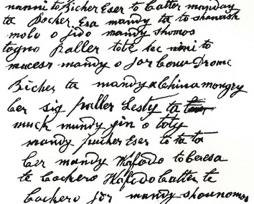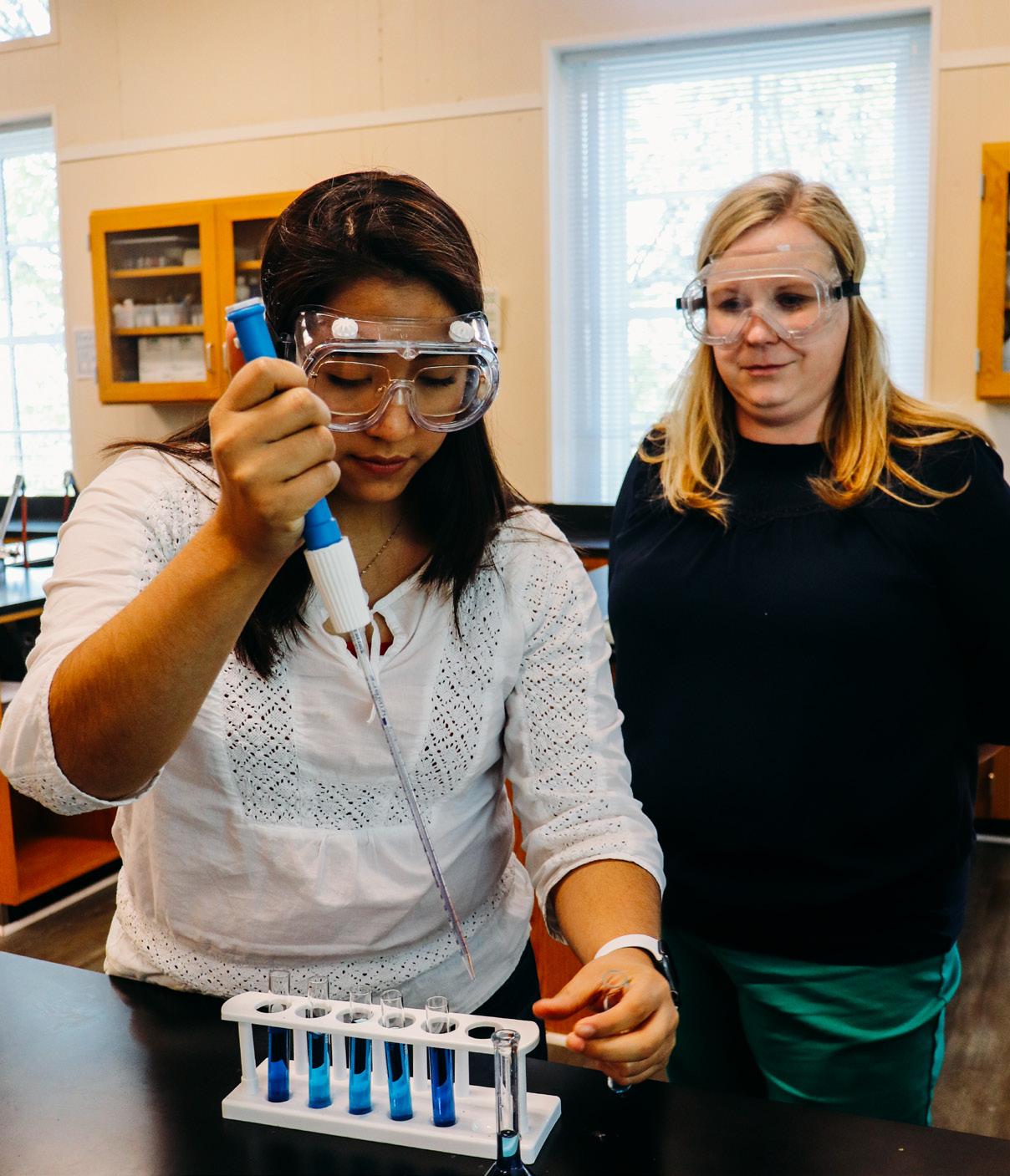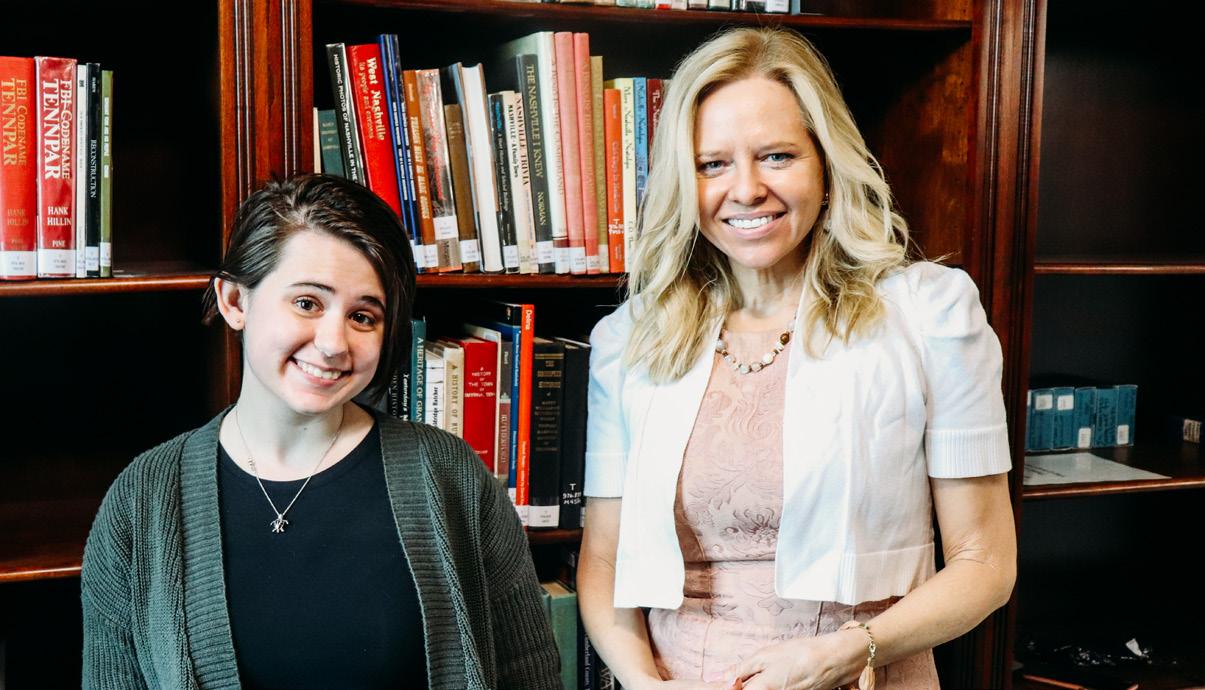
4 minute read
Rising Beyond the Classroom
Faculty members are leaving their mark at Cumberland with help from the Dr. C. William McKee Academic Research Grants.
Abby Pitts, Director of Student Retention and Tennessee Promise Support: These projects, entitled “A Study on Increasing Freshman Resilience” and “Workshops to Aid Freshman and Sophomore Students in Selecting a Major” will focus on increasing student resilience and offering students ways to find their majors. The first project stems from CU’s Quality Enhancement Plan (QEP) and will use test and control groups, along with pre and post surveys, to analyze results. The second will offer workshops to students with the goal of having students realize what major makes them passionate about their studies and in turn, become more engaged with course work and the campus.
Eddie Christian, Director of Counseling Services: The study is titled Physician Authentic Leadership and Emotional Intelligence, as Healthcare Managers: Their Impact on Subordinate Ethical Strength. The study will involve a quantitative correlational design to explore answers to three research questions: (1) Does physician EI predict employee ethical strength? (2) Does physician EI predict their AL? and (3) Does physician AL moderate the relationship between physician EI and employee ethical strength? The purpose of this study is to address healthcare corruption and the lack of moral integrity in the field, as reported in the current literature. The aim is to provide relevant information to physicians and healthcare administrators as guidance toward proactively affecting corruption and its destructive repercussions in the industry.
Dr. Jenny Mason, Associate Professor of Psychology and Psychology Program Director: Recently, students began stating that they feel more invested and active in the Psychology program compared to others (both here and at other schools), which might be a result of the Family Chores Initiative (FCI). This initiative came about as an understanding that being part of a family often means helping without a direct reward, with simply the understanding that benefitting your family also benefits you. This project will connect each student’s direct involvement in FCI opportunities with their self-reported levels of program engagement and loyalty, trying to determine whether more involvement in FCIs directly connects to how invested students feel about this school and this major.
Dr. Kent Hallman, Assistant Professor of Sociology: This project is dedicated to linguistic diversity and language preservation. The ancient Romani language has been spoken in the Americas since 1498, in North America since the 1600s, and is one of the two oldest non-indigenous minority languages in the Americas. However, minority languages - especially those unsupported by government agencies or other allies - are vulnerable to language loss. This project will collect language samples on contemporary American Romani, to gauge the current state of the language, collect linguistic data and lay the foundation for future work on language preservation.
Sugeidy recently presented her research with the American Chemical Society National Spring Meeting. Her research presentation was “Factors that Determine the Amount of Capsaicin in Jalapeño Peppers”.
Capsaicin is the main compound in peppers that specifically triggers the transient receptor potential vanilloid 1 (TRPV1) ion channel. TRPV1 of the body signals the brain that a food is spicy. The amount of capsaicin is interesting because humans are the only ones who find spicy flavors appealing, while other animals are repulsed by it. This gives rise to an interest in quantifying the amount of capsaicin in peppers. Capsaicin concentration was determined in three different pepper types including Jalapeño, Serrano, and Cayenne. The current hypothesis is that as the amount of nitrogen content increases, the amount of capsaicin will also increase because the capsaicin molecule contains a nitrogen atom. After the plants produce Jalapeño fruit, the same solid-liquid extraction procedure will be performed followed by UV-VIS spectroscopy to determine the amount of capsaicin in each pepper.

Sandy Gertz, Assistant Professor of Creative and Imaginative Writing: This grant will help
to fund a commemorative print edition of the Novus Literary Journal, featuring the best work since the journal’s inception in the spring of 2019. This will be distributed to local libraries, schools, bookstores, and will have several launch events in the fall within a tri-county area. Funds from this grant also allowed the journal to enhance the online edition by going nationally on the industry-standard Submittable platform and join the Community of Literary Magazines and Presses.

Rachael Bible, Assistant Professor of
Anthropology: CU houses a large archaeological collection with, at last count, 3,243 artifacts in the Porter and Heifner collections. These two collections consist mainly of stone tools (Porter Collection) and Southwestern ceramics (Heifner Collection). By documenting and databasing these collections, as well as other collections housed at CU, we can position ourselves to add to multiple conversations about archaeology in general and the use of archaeological collections as a teaching tool in higher education. Students in multiple programs will be able to work directly with the archaeological and museum collections and have a vital role in establishing both the database of our artifacts as well as creating an online presence to share that experience and knowledge.








